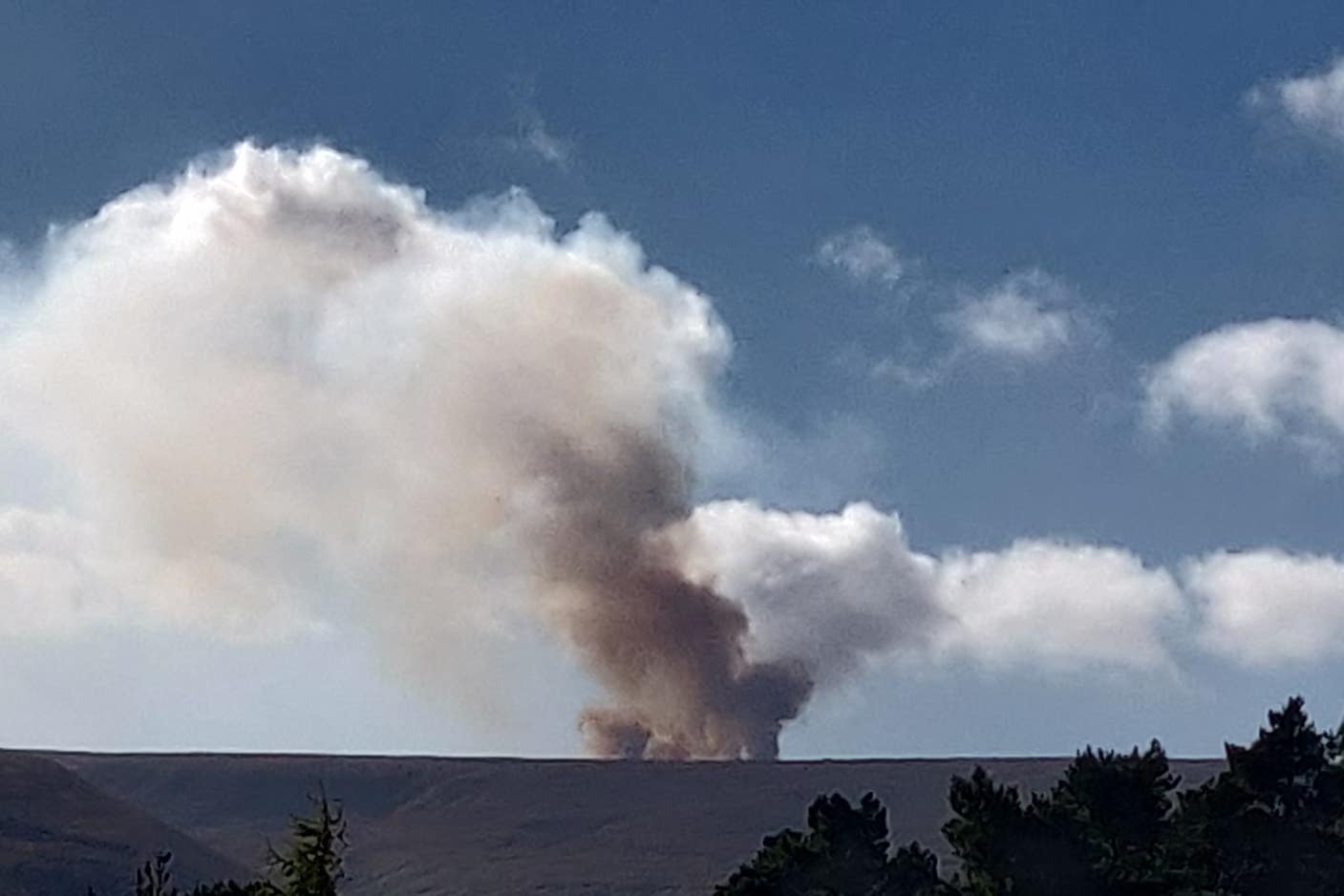Real estate company fined for burning peatland in protected area
Dunlin Ltd, owner of Midhope Moor in the Peak District, admitted six charges of burning without a licence.

A real estate company worth nearly £20 million has admitted burning peat illegally on one of its estates.
Dunlin Ltd, owner of Midhope Moor in the Peak District, was fined £2,645 while incurring costs of £125 and a surcharge of £720 after pleading guilty to six charges of burning peat without a licence.
The case, heard at Sheffield Magistrates’ Court on Wednesday, is the first to be brought by the Crown Prosecution Service under new regulations introduced in 2021.
The RSPB said it first reported burning to the Department for Environment, Food and Rural Affairs (Defra) in November 2022.
Investigators then found 30 burns across 46.06 hectares on a hillside within a site of special scientific interest. All 15 samples taken were found to be greater than 50cm.
Under the 2021 Heather and Grass etc Burning regulations, burning peat at this depth in protected areas is illegal without a licence to do so.
Dr Pat Thompson, senior policy officer for RSPB England, said: “This case demonstrates that despite assurances from some in the shooting community, illegal burning is still happening in some of our most highly protected areas.
“We know that many driven grouse moor managers are following the new rules, however, if we are to restore our upland peatlands, we need to see all land managers comply.”
The regulations were brought in to protect peatlands, which are important carbon sinks – England’s upland peatlands are thought to contain more than 138 megatonnes of carbon, the RSPB said.
They are also important habitats for many species, including the rare hen harrier, which uses peatland for hunting and nesting.
A spokesperson for Dunlin Ltd said: “The estate management deeply regrets this contravention of burning regulations.
“We take our land management responsibilities very seriously and burning consents had been granted to us previously for the land in question.
“We genuinely misunderstood the updated regulations and this led to these errors. We have already implemented measures to ensure such an error will not happen again.”
Though the fine is modest, the verdict is good. If you break the law when burning, you may be prosecuted and fined
Burning of heather on peatland is a common practice among driven-grouse moor gamekeepers as a way to encourage new heather shoots for red grouse to feed on before they are shot for sport.
The RSPB said only 10-15% of England’s peatlands remain in a favourable state and that action must be taken.
Environment minister Trudy Harrison said: “Peatlands are a valuable natural resource. They provide drinking water, food and shelter for rare wildlife and help prevent flooding by soaking up water.
“This verdict – the first following our new legislation – sends an important message that we will do all we can to protect our largest store of carbon from degradation, which is a crucial step in meeting our commitment to reach net zero by 2050.”
Andrew Dodd, head of casework for the RSPB, said: “We are pleased to have been able to support this investigation. Over the last three burning seasons, we have been working with volunteers and supporters to gather information on burning in our uplands and share that information with Defra and Natural England.
“The upland burn reporting app has provided us with invaluable data on when and where burns are reported to take place and we verify reports against existing peat depth maps to see if the recorded burns are likely to be on deep peat over 40cm deep or inside protected areas.
“We are grateful to volunteers and supporters who have reported records via the burning app and to Defra and Natural England for their support.
“Lots of colleagues helped make this happen. Though the fine is modest, the verdict is good. If you break the law when burning, you may be prosecuted and fined.”
